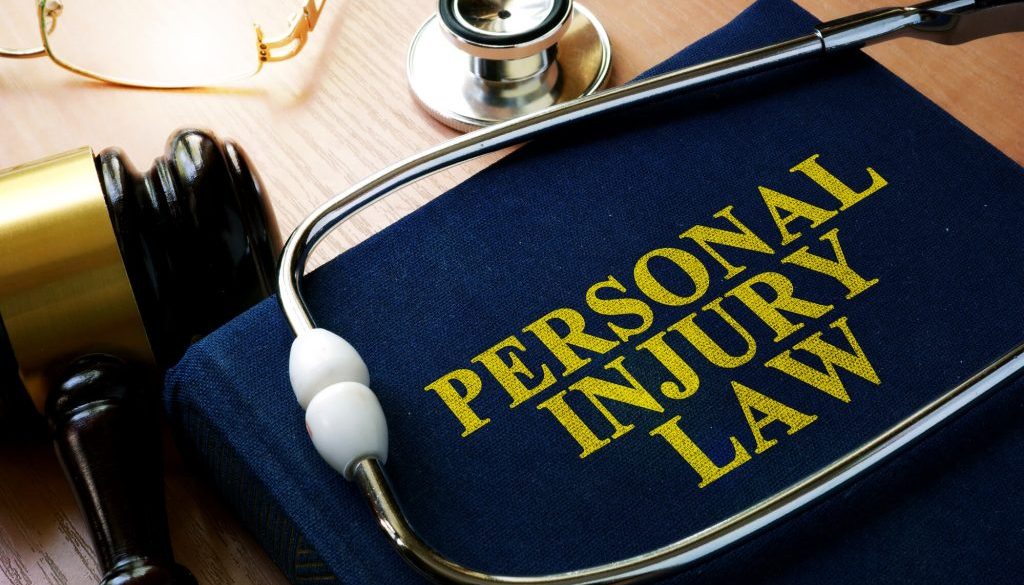How Are Attorney Fees Handled in Personal Injury Cases?
If you’ve been injured in an accident or due to someone else’s negligence, you may be considering filing a personal injury claim to seek compensation for medical bills, lost wages, pain and suffering, and other damages. One of the key concerns for many clients is how attorney fees are handled in personal injury cases. Understanding how lawyers charge for their services can help alleviate some of the stress involved in pursuing a personal injury claim.
In personal injury cases, most lawyers work on a contingency fee basis. This means that you won’t need to pay any upfront fees for their legal services. Instead, the lawyer will only get paid if you win your case or secure a settlement. Let’s break down how this works, what it means for you as the client, and the other costs associated with personal injury claims.
1. What is a Contingency Fee Agreement?
A contingency fee is a type of arrangement where the lawyer’s fee is contingent upon the outcome of your case. In other words, the lawyer only gets paid if you win the case or reach a settlement. The typical fee structure for a personal injury lawyer working on a contingency basis ranges from 25% to 40% of the settlement or verdict, with the exact percentage depending on the complexity of the case and the lawyer’s policies.
2. How Does a Contingency Fee Work?
When you hire a personal injury attorney, you and the lawyer will sign a contingency fee agreement, which outlines the percentage the lawyer will receive if you win your case. For example, if your lawyer charges a 33% contingency fee and your case results in a $100,000 settlement, the lawyer would receive $33,000, and you would receive $67,000.
This fee is typically calculated after any costs and expenses associated with the case have been deducted, such as court fees, expert witness costs, and filing fees. It’s important to understand that while the percentage is fixed, the exact dollar amount the attorney receives depends on the outcome of your case.
3. Why Do Personal Injury Lawyers Use Contingency Fees?
There are a few key reasons why personal injury lawyers generally use contingency fees:
- Access to Justice: Many people who have been injured do not have the financial resources to pay hourly or flat-rate legal fees. By offering contingency fees, lawyers ensure that individuals who have been hurt through no fault of their own can still seek justice, even if they don’t have the money to pay upfront.
- Motivation for Success: Lawyers who work on a contingency fee basis are motivated to secure the best possible outcome for you, because their payment depends on it. The more successful your case, the higher their fee, so attorneys are highly incentivized to work hard for a favorable settlement or verdict.
- Risk Sharing: Personal injury cases can be unpredictable, and there’s always a risk that the lawyer may not win the case. Contingency fees allow the lawyer to take on the financial risk, knowing they may not be compensated if the case is lost. This makes legal representation available to individuals who may not otherwise be able to afford it.
4. Are There Any Additional Costs in Personal Injury Cases?
While the lawyer’s fee is typically contingent on the outcome of the case, there are other costs associated with pursuing a personal injury claim. These costs are known as case expenses or litigation costs and may include:
- Court fees: Fees required to file documents and motions with the court.
- Expert witness fees: Fees for specialists who may provide testimony to support your case, such as medical professionals, accident reconstruction experts, or industry professionals.
- Investigation costs: The costs of gathering evidence, interviewing witnesses, or hiring private investigators.
- Medical record fees: The cost of obtaining your medical records and bills to document the injuries you’ve sustained.
- Deposition costs: The cost of transcribing depositions or paying for the services of a court reporter.
These costs are typically paid out of your settlement or verdict, but you are required to reimburse your attorney for any expenses that occur during the case, whether you win or lose. Your attorney should discuss these costs with you upfront, so you are aware of any potential financial obligations before proceeding with your claim.
5. Do I Have to Pay Legal Fees If I Lose My Case?
The beauty of contingency fees is that you don’t pay attorney fees if you lose your case. If the case does not result in a settlement or favorable verdict, you typically owe nothing in attorney fees. However, you may still be responsible for certain case expenses or costs incurred during the litigation process.
In some cases, your lawyer may waive these fees if the case is unsuccessful, but this is something that should be clearly outlined in the contingency agreement. Always make sure you fully understand the terms of the agreement before you sign it.
6. How Much Should I Expect to Pay for Legal Fees?
The percentage that your lawyer will take depends on the agreement you sign. However, here’s a general breakdown of what you might expect:
- 25%: This is a lower rate that might apply if your case settles quickly without going to trial.
- 33%: This is a common rate for many personal injury cases. It typically applies if the case is resolved through negotiation or settlement.
- 40%: This higher percentage may apply if the case goes to trial and requires more time and resources to litigate.
These percentages are negotiable in some cases, so it’s a good idea to discuss the fee structure upfront with your lawyer. Keep in mind that while a lower percentage might seem attractive, it’s important to consider the lawyer’s experience, success rate, and how much effort they will put into your case, especially if it’s a complicated or high-stakes claim.
7. Can I Negotiate the Contingency Fee?
In some cases, you may be able to negotiate the contingency fee with your attorney, particularly if your case is straightforward, or if you have multiple lawyers to choose from. However, many lawyers use a standard contingency fee structure, so there may be little room for negotiation. It’s worth asking about flexibility in the fee arrangement, especially if you’re concerned about costs.
8. What Happens If My Case Settles Before Trial?
If your case settles before trial, your lawyer’s fee will be based on the settlement amount. Typically, if you reach a settlement early in the process, the lawyer’s fee may be lower because they’ve spent less time working on the case. However, the actual fee depends on your specific agreement and the complexity of the case.
9. Do I Need to Pay Taxes on the Settlement?
The settlement you receive from a personal injury case is generally not taxable, as it compensates you for pain and suffering, medical expenses, and lost wages. However, if the settlement includes compensation for punitive damages, that portion of the settlement could be taxable. Your attorney can help you understand the tax implications of your settlement.
Conclusion
When pursuing a personal injury case, attorney fees are typically based on a contingency fee arrangement. This means that you only pay legal fees if you win or settle your case, and the lawyer’s fee is a percentage of your settlement or judgment. While this structure makes legal representation accessible to many, it’s important to understand the percentage fee, additional case expenses, and any other financial obligations that may arise during the course of your case.
Before hiring a personal injury attorney, make sure you discuss the fee structure in detail and clarify any concerns you may have. A clear understanding of the costs involved will help you make informed decisions about your legal representation and ensure that you are comfortable with the financial aspects of pursuing your claim.
Need legal help? In California, navigating legal challenges, whether they involve personal injury, workers’ compensation, criminal defense or civil litigation, can be overwhelming. Expert Attorney Help is here to provide the critical legal support you need. As a leading advocate for individuals facing legal battles, our experienced attorneys understand the complexities of the legal system and are committed to fighting for your best interests. With personalized legal strategies and compassionate support, we are dedicated to achieving the justice and compensation you deserve.
CONTACT US FOR HELP. Call us at (888) 354-6879 or fill out the form on our Contact page.




